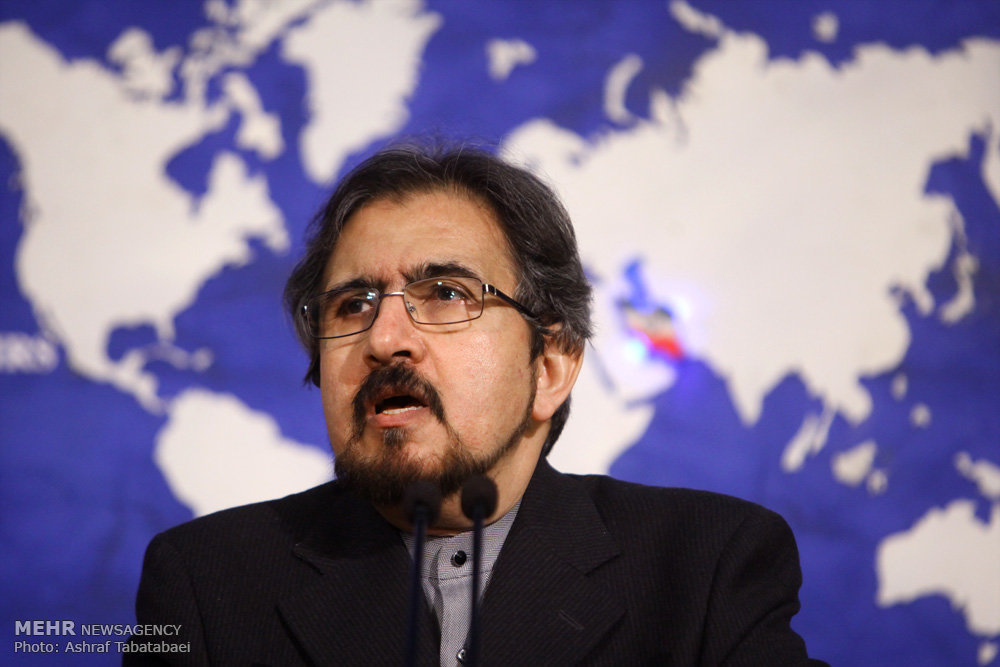No progress made on restoring ties with Cairo: Iran

TEHRAN – Despite its vitality for the Middle East, no special advance has been made on relations between Tehran and Cairo, stalled for about four decades now, a spokesman with Iran’s Foreign Ministry said on Monday.
“Currently, there is no special progress (in bilateral ties) and relations are at the same level as they were in the past,” Bahram Qassemi replied to a Tehran Times question in a press conference in Tehran.
“We hope to overcome obstacles for the relations to enjoy a better situation.”
Egypt, with a third of the Sunni Arab world’s population, and Iran, the biggest Shia country, can be the prime movers for reconciliation in the Muslim world and for regional stability.
Relations between the two regional powers originally soured in the aftermath of the Iranian revolution, when then-Egyptian leader Anwar Sadat gave refuge to the ousted Shah of Iran and signed the Egypt-Israel peace treaty in 1979.
The two agreed to set up interest section offices in 1991 under the Rafsanjani administration.
Prior to the political severance between Saudi Arabia and Iran and the subsequent closure of embassies in the two countries, Egypt was the only Arab country that did not have an embassy in Iran.
So far efforts to reconcile the two countries have produced no results.
In December 2003, Egyptian President Hosni Mubarak attended a groundbreaking meeting with his Iranian counterpart Mohammad Khatami on the sidelines of a UN technology summit in Geneva.
Although the meeting, the first between an Iranian and an Egyptian president since the 1979 Islamic Revolution, generated talks of rapprochement, but it never happened in practice.
One year later a more practical step was taken. Seyyed Hossein Mousavian, then head of the foreign relations committee of Iran’s National Security Council, was invited for a confidential meeting with Osama El-Baz, the then senior political advisor to then-Egyptian president Hosni Mubarak, the Iranian diplomat revealed in a recent article in Asia Times.
After a day of negotiations in Alexandria, a package was agreed for the normalization of Iranian-Egyptian ties. Ultimately, however, the agreement was met with rejection by top decision makers in Cairo and Tehran.
More recently, in February 2013, former Iranian President Mahmoud Ahmadinejad took a formal visit to Cairo, a landmark visit in which he was greeted by his Egyptian counterpart Mohammed Morsi on arrival, but again with no real subsequent warming of relations.
Also in December 2016, Yasser Othman, the head of Egypt’s Interests Section office in Tehran, met with Foreign Minister Mohammad Javad Zarif to discuss regional issues.
Although there are no senior direct contacts, the two sides have avoided taking hostile stances towards one another.
Egypt did not follow suit after most Arab countries appeared critical of a 2015 international nuclear deal between Iran and six world powers, which they fear contributes to a stronger Iran with wider spheres of influence.
Also Egypt’s stance on the Syrian crisis, which was close to that of Saudi Arabia during Morsi’s tenure, has changed since the ouster of Morsi. Now the ruling Egyptian government’s stance on the Syrian crisis has tilted towards that of Iran and Russia.
In October, Egypt voted in favor of a Russian-drafted UN resolution on Syria, a move that angered Saudi Arabia.
AK/PA
Leave a Comment